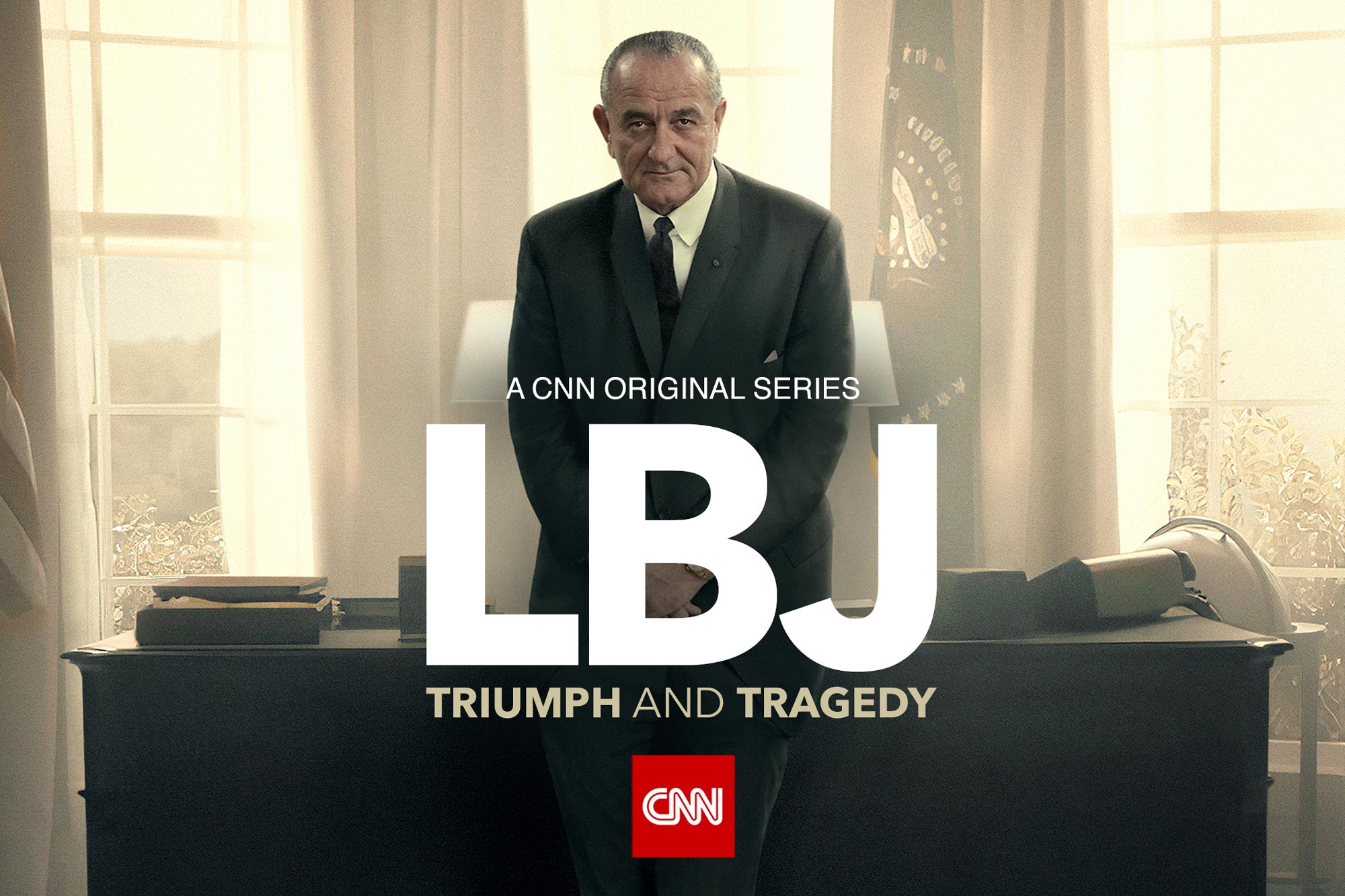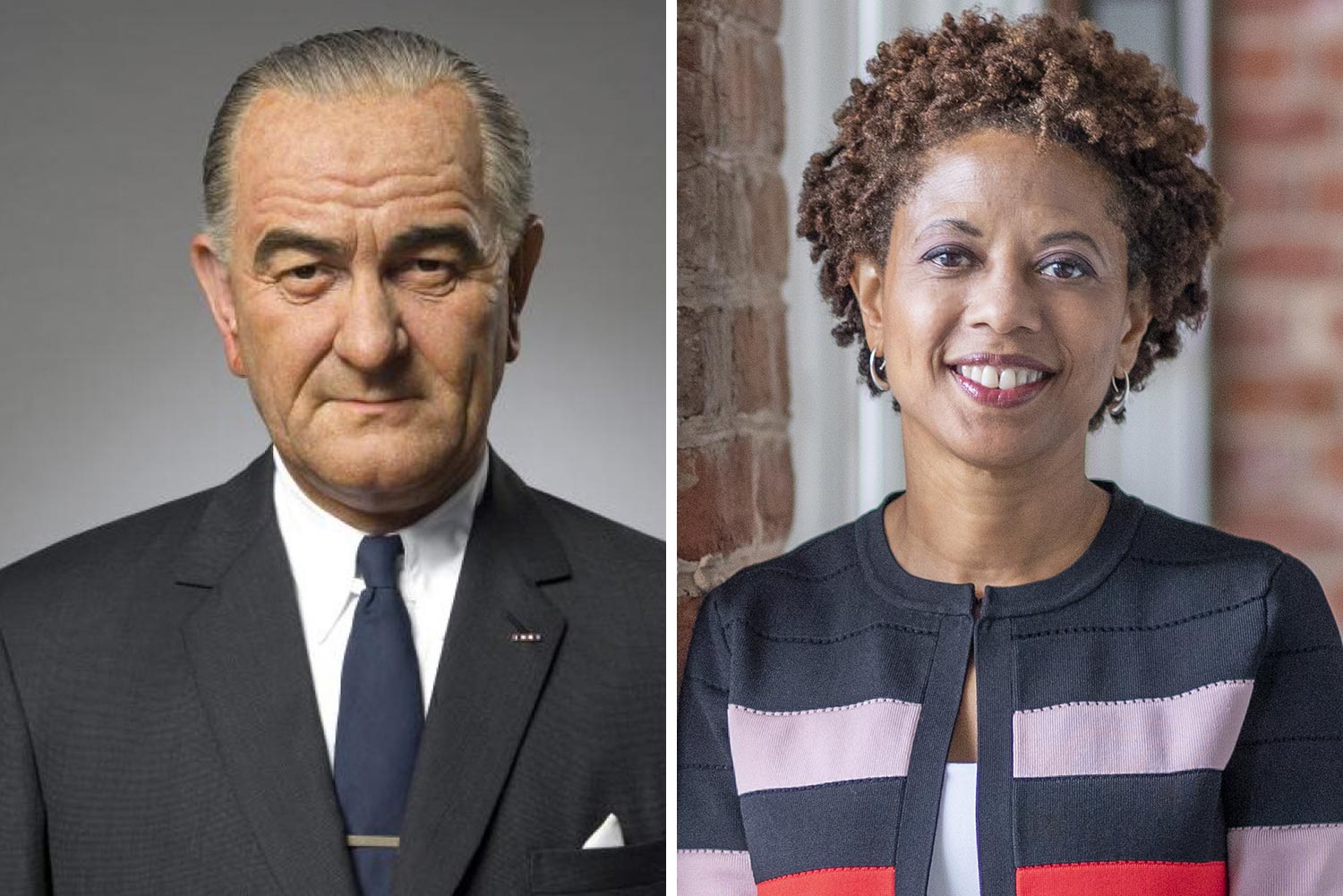Since 2016, former U.S. President Lyndon B. Johnson has been portrayed in two Hollywood films, was the subject of a nationally recognized podcast series and will soon be the reason for a CNN documentary.
That’s a lot of fresh content for someone who was last in the Oval Office more than five decades ago.
The sudden wave is not surprising to Melody Barnes, the executive director of the Karsh Institute of Democracy at the University of Virginia. Barnes – whose podcast, “LBJ and the Great Society,” was named the ninth-best of its kind by the New Yorker in 2020 – said the complexities of Johnson’s life make him an enticing character for audiences. Also, many of the same issues Johnson fought for while president are once again in the spotlight.
LBJ, who was in the White House from 1963 to ’69 and died four years later, remains a person of interest.
“Perhaps this is a moment for some to look at Johnson with fresh eyes,” Barnes said. “As we’re having these debates over the role of government in people’s lives and the role for these policies and the fulfillment of American democracy, this is a chance to think about and look at Johnson with a different perspective.”
In connection to Presidents’ Day weekend, a four-part documentary, “LBJ: Triumph and Tragedy,” will debut on CNN with back-to-back, 9 p.m. episodes on Sunday and Monday. Barnes, who was interviewed at length for the film, will help preview it Wednesday on CNN as she joins “Don Lemon Tonight” around 11:45 p.m. She appears several times throughout the documentary’s four episodes. Kevin Gaines, UVA’s inaugural Julian Bond Professor of Civil Rights and Social Justice, and Guian McKee, a presidential studies professor at the Miller Center of Public Affairs, also appear in the series.

“LBJ: Triumph and Tragedy” premieres this weekend on CNN. The four-part documentary exploring the times of the former U.S. president includes insight from Melody Barnes, executive director of UVA’s Karsh Institute of Democracy. (Photo courtesy of CNN)
UVA Today caught up with Barnes to talk all things LBJ.
Q. What are your early impressions of “LBJ: Triumph and Tragedy”?
A. It’s fascinating, in large part because we are working with a person who is such a complex and important figure in American history. And I think he’s been confounding to us. How do you pin down Lyndon Johnson? Who is Lyndon Johnson?
I’ve talked with the directors and producers. They said, after interviewing people over the last year and a half, that people who knew Johnson are still learning new things about him. These are people who negotiated with Johnson while he was president, who were part of the civil rights movement. They were learning new things about him and it was shaping their perceptions of him. That’s fascinating.
I think that’s what makes this such an interesting project.
Q. For those who have listened to your podcast, what are some things in the documentary that expand on your work?
A. In talking to people who listened to the podcast, one of the things that they found so interesting was hearing Lyndon Johnson (through the material provided by the LBJ Library and the Miller Center’s Presidential Recordings Program) – hearing his voice and the inflection, hearing him in the negotiations, hearing him pushing and prodding and processing and thinking.











